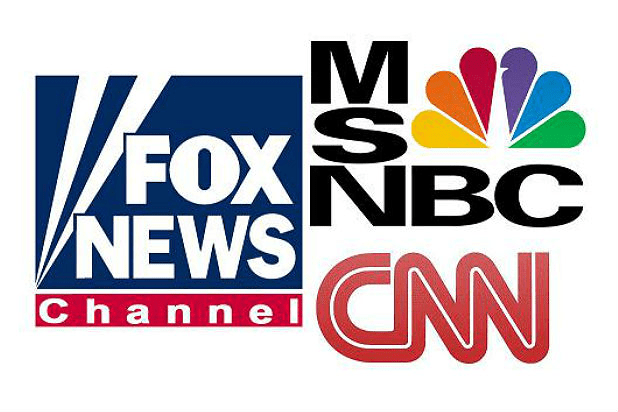Op-Ed: The Coronavirus Triumphs, Aided By Cable News (And President Trump)
For years, I’ve been writing about the inadequacy of cable news reporting. I’ve also labeled it the “bad news networks.” Because of what has been happening in our country during the first half of 2020, I now accuse the cable news industry of formenting death and destruction, even on a greater scale than they have done in the past.
Here’s why:
After months of wall-to-wall coverage of the coronavirus, it seemed that President’s Trump was correct when he said on February 27 that “It’s going to disappear. One day it’s like a miracle—it will disappear.” And it appeared to the cable networks like the miracle occurred on May 26, after George Floyd died after a Minneapolis Police Department officer Derek Chauvin knelt on his neck for 8 minutes and 46 seconds during an arrest the prior night.
Faster than you can say “Abracadabra” the cables changed its news coverage from deaths caused by the Covid-19 to the destruction of American cities, caused by looters using the inexcusable death of Mr. Floyd as an excuse to get a free shopping pass.
Instead of giving at least equal commentary for the reasons that originally caused the civil disobedience, the cable cameras were focused for 24/7 on the destruction caused by the agitators.
Television is a visual medium and pictures of burning buildings and protesters clashing with the police were the default position of producers.
Some people believe that televising destructive actions, by individuals, as well as a mob, only encourages additional anti-social actions because it provides a worldwide spotlight for the actions.
Certainly the pictures of burning buildings and police clashes are more interesting than listening to medical scientists talk about the coronavirus, or Fox News commentators from the right assailing liberal Democratic governors for over blowing the “Democratic hoax,” echoing what President Trump said on February 28 that the virus was the Democrats new hoax during a speech in South Carolina. Or listening to the commentators from the left on MSNBC continually attacking the president (even though much of what they say is true, unlike the lies by the Fox commentators).
But largely missing from the coverage is how the coronavirus is still killing American every day, despite the absence of coverage from the cables. According to John Hopkins University, as of May 31 “The first case of COVID-19 in US was reported 129 days ago on 1/22/2020. Yesterday, the country reported 20,007 new confirmed cases and 605 deaths,” bringing the total number of deaths to 105,165 deaths as of June 1.
Cable News has long forfeited itself as being a trusted purveyor of news. It operates much as did the yellow journalism of the past, with its tenets being sensationalism, exaggeration and outright lies. It thrives on human misery; good news is its enemy.
As cable news pays little attention to the coronavirus, Covid-19 thrives. The coronavirus is largely ignored by many people, forgotten by others who rely only on the cables for their news.
As the new cases of coronavirus spread across the U.S., aided by cable news’ ignoring the disease, and President Trump urging the re-opening of the economy and ignoring the advice of medical scientists, as we enter the second half of this sad year there is a clear winner – coronavirus. There are also clear losers; trust, honest reporting and a government that many people can believe in.
There’s an important lesson for PR people to remember from the months of hard news coverage since the beginning of the year. When dealing with the media, unless you have legitimate hard news to announce, timing plays a critical role in the success or failure of your pitch. Don’t pitch during periods that you know will result in hard news coverage – hurricanes, floods, mass killings, presidential elections, etc. Time your pitch to quiet periods. That’s when reporters, editors and producers might be on the lookout for the soft stories that encompass the majority of PR pitches.
 About the Author: Arthur Solomon, a former journalist, was a senior VP/senior counselor at Burson-Marsteller, and was responsible for restructuring, managing and playing key roles in significant national and international sports and non-sports programs. He now is a frequent contributor to public relations publications, consults on public relations projects and is on the Seoul Peace Prize nominating committee. He can be reached at arthursolomon4pr@juno.com or artsolomon4pr@optimum.net.
About the Author: Arthur Solomon, a former journalist, was a senior VP/senior counselor at Burson-Marsteller, and was responsible for restructuring, managing and playing key roles in significant national and international sports and non-sports programs. He now is a frequent contributor to public relations publications, consults on public relations projects and is on the Seoul Peace Prize nominating committee. He can be reached at arthursolomon4pr@juno.com or artsolomon4pr@optimum.net.


